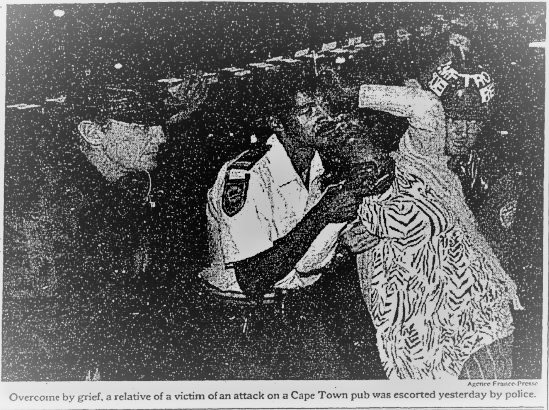There were fewer more high profile injustices than apartheid in South Africa. It is no wonder that terrorist groups arose to fight it.
Writing at the end of 2019, on the cusp of the start of a new decade, it is getting harder to remember what it was like living in South Africa for most of the 20th century. That country, a former British colony and home of thousands of Dutch colonists (known as Boers), was known for one of the worst systems of social separation: apartheid.
If you were living in South Africa at the time your days would unfold in different ways depending on which ‘category’ you belonged to. At the apex of the social pyramid were the whites, followed by ‘Asians’, ‘Coloured’ and ‘Black Africans’. As bottom dwellers, the latter were forced to live in separate townships, were not allowed to vote and faced discriminatory practices at every turn.
Is it any surprise that violence arose from this patently racist system?
There were of course periodic riots as blacks fought for better living conditions. The African National Congress (ANC), which dates back to 1912, gained influence – sometimes through the use of violence – in the anti-apartheid struggle. This horrible situation also gave the world heroes such as Nelson Mandela: freedom fighter, Nobel Prize laureate, and South Africa’s first black president (he was also incarcerated for three decades).
And there were acts of terrorism.
On December 30, 1993 a terrorist attack unfolded at a popular student hangout in Cape Town, the Heidelberg Pub. A hail of bullets shattered one of the windows, immediately followed by M26 rifle grenades, studded with nails, and automatic rifle fire, turning the cosy tavern into an instant morgue. In all, four people were killed and five were wounded.
The armed wing of the Pan Africanist Congress, the Azanian People’s Liberation Army (APLA), claimed responsibility for the attack, saying it was in retaliation for the South African Defence Forces’ killing of five black schoolchildren one month earlier. Three APLA ‘soldiers’, Humphrey Luyanda Gqomfa, Vuyisile Brian Madasi and Zola Prince Mabala, were convicted in 1994 but later amnestied in 1998.
This all seems like ancient history now. The ANC has been in power ever since the ‘end’ of apartheid in 1994. And yet South Africa is a very violent land, ranking fifth worst in the world with regard to law and order by one account.
A lot of this violence is undoubtedly due to the lasting effects of apartheid. The question remains: how does a country get over this tragedy and build a safe society? It does not appear that South Africa has the answer.

